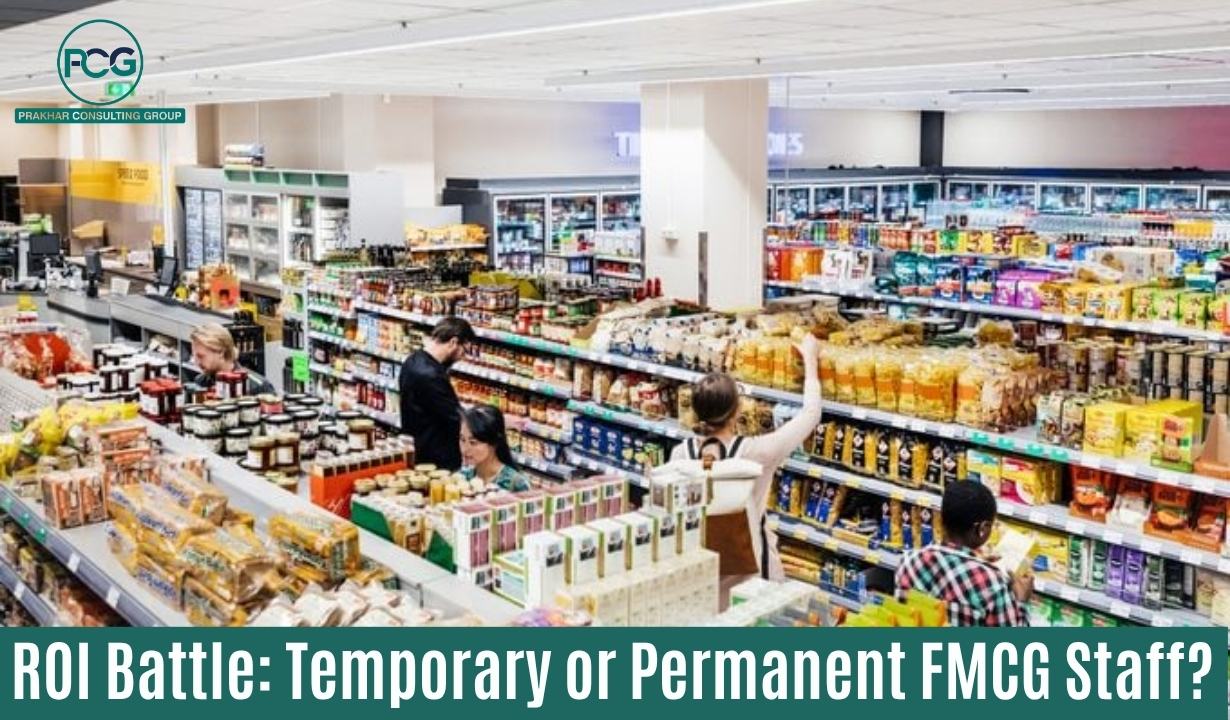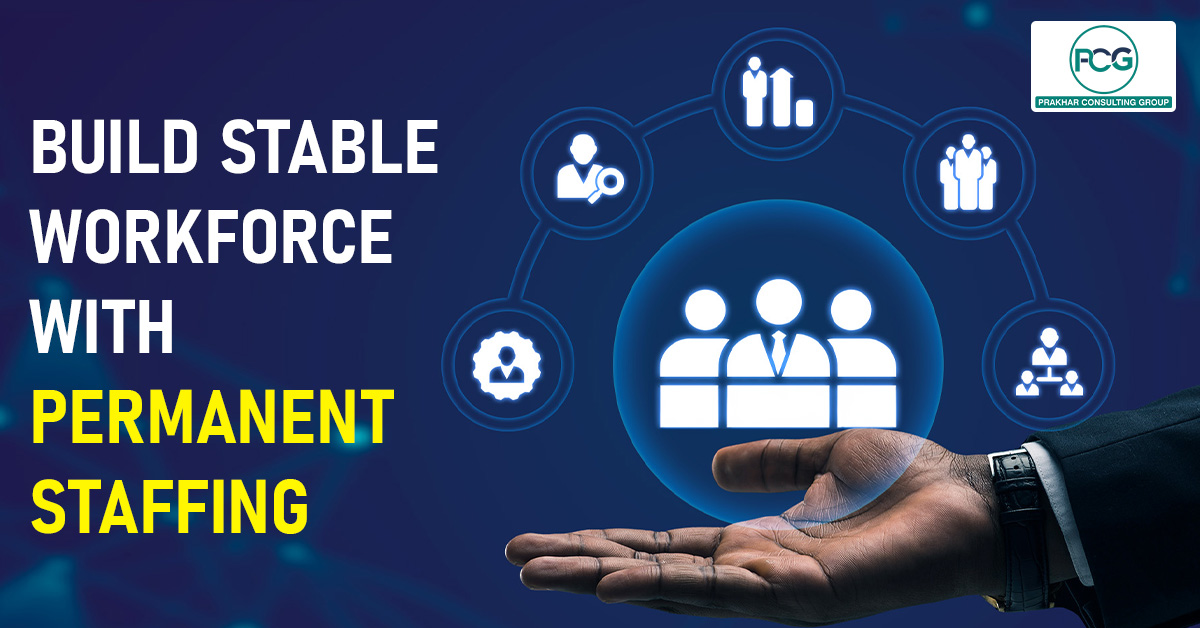The ROI Battle Between Permanent and Temporary FMCG Staffing
Author: Mayank Puri

Are you a part of the Fast-Moving Consumer Goods industry? If yes, you might be aware of how crucial hiring decisions are these days. It impacts execution, customer experience, and bottom-line performance.
Whether it’s a new product launch or day-to-day retail operations, companies often face a tough choice- should they invest in permanent talent or rely on temporary workforce models?
While temporary staffing offers flexibility and speed, permanent hiring brings stability and brand alignment. Many brands today are turning to Permanent Hiring Agencies in India to streamline their recruitment strategy by ensuring they get the right mix of trained, committed personnel who can support business continuity in a competitive market.
In this blog, let’s find out whether permanent staffing can deliver better ROI or if you should move towards temporary staffing.
Everything You Need to Know About ROI in FMCG Hiring
Return on investment in FMCG is not just about product sales. It includes:
1. Manpower efficiency
2. Consistency in execution
3. Reduction in training costs
4. Ability to scale quickly without compromising quality.
Hiring decisions directly affect how a brand performs at ground level, especially in retail-dominated markets.
Understanding the ROI impact of each staffing model helps FMCG companies make informed choices whether it's boosting outlet coverage, managing seasonal surges, or strengthening brand loyalty in key territories.
How Permanent Staffing Can Help FMCG Companies?
If you are serious about making an everlasting relationship between your brand and employees, permanent staffing can open those doors. It will help in-
1. Better performance
2. Lower attrition
3. A deeper understanding of market nuances
Field staff who stay longer are more likely to build trust with retailers and contribute to accurate data reporting and consistent brand representation.
Additionally, brands can invest in upskilling with confidence that the same team will deliver long-term results. Permanent employees tend to align better with brand values and provide continuity in daily operations, which is essential for roles like:
- Territory sales
- Retail supervision
- Distributor relationship management
How Temporary Staffing Can Improve the FMCG Ecosystem?
No matter whether you are running a well-seasoned brand in the market or have just started, remember that temporary staffing always has a valuable place in the FMCG ecosystem. Temporary staff can manage the following things:
- Seasonal spikes
- Promotional events
- Rural drives
- New product activations
Organizations offering Manpower Temporary Staffing Services, such as Prakhar Consulting Group, help FMCG companies deploy trained short-term teams for tactical requirements.
These models are best suited when speed, flexibility, and cost control are the primary concerns, especially during time-bound retail campaigns or sales boosts.
Comparison Between Permanent and Temporary Staffing
Permanent staffing is ideal for roles that demand consistency, territory expertise, and brand alignment. These include the field:
1. Sales executives
2. Merchandisers
3. Area managers
4. Distributor relationship officers
Having the same faces on the field fosters better rapport with retailers and enables effective territory penetration over time.
On the other hand, temporary staffing works well for shorter stints where the focus is on immediate task execution rather than long-term performance.
These include:
1. Promo staff
2. Field surveyors
3. Event teams
4. Seasonal foot soldiers
While cost-effective in the short run, repeated training and high turnover may erode overall ROI if overused.
Role of Recruitment Partners in Smart Hiring
Choosing the right staffing mix requires deep knowledge of territory-specific market dynamics, sales goals, and execution challenges.
That’s why companies increasingly rely on experienced Recruitment Services in India providers like Prakhar Consulting Group.
These partners bring data-driven hiring strategies, access to ready talent pools, and tailored staffing models based on business needs.
Conclusion
There is no one-size-fits-all approach when it comes to staffing in the FMCG industry. Both permanent and temporary hiring strategies have their own strengths and their effectiveness depends on how, where, and why they’re used. While permanent staffing brings structure, retention, and brand affinity, temporary hiring offers unmatched flexibility and speed. To truly maximize ROI, FMCG companies must move beyond reactive hiring and adopt a proactive staffing strategy.


